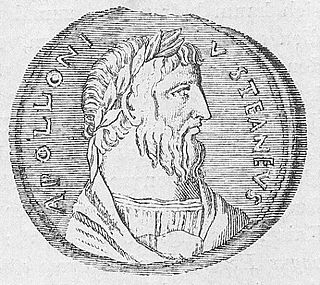Top 38 Quotes & Sayings by Apollonius of Tyana
Explore popular quotes and sayings by a Greek philosopher Apollonius of Tyana.
Last updated on December 19, 2024.
A man must fortify himself and understand that a wise man who yields to laziness or anger or passion or love of drink, or who commits any other action prompted by impulse and inopportune, will probably find his fault condoned; but if he stoops to greed, he will not be pardoned, but render himself odious as a combination of all vices at once.

























